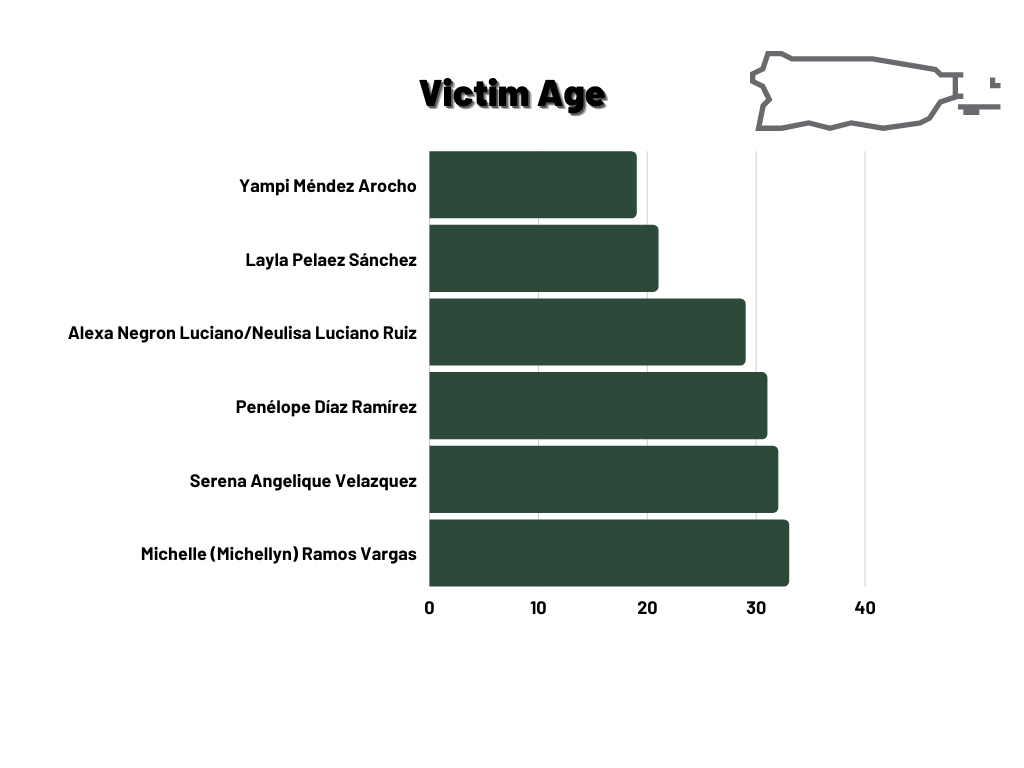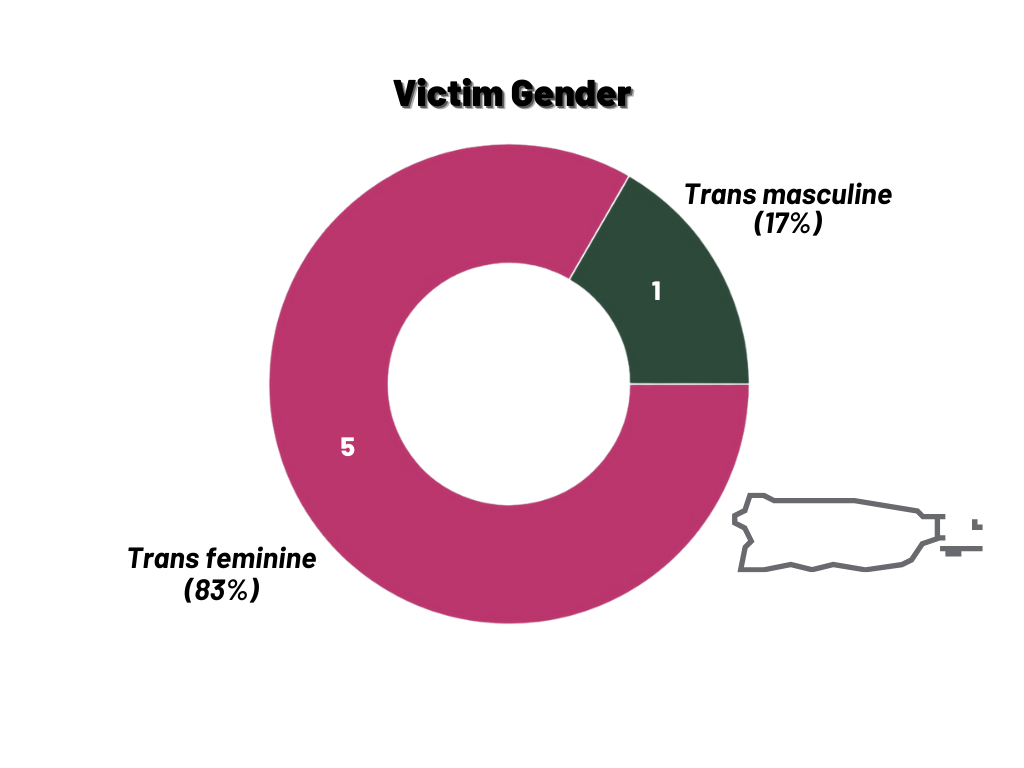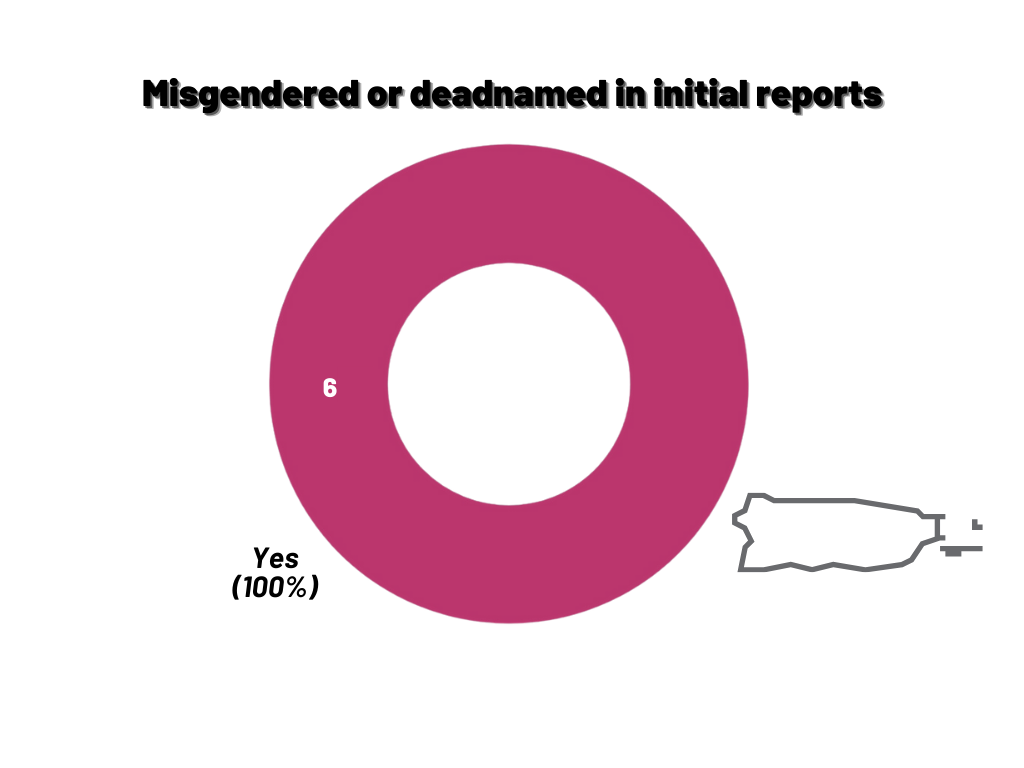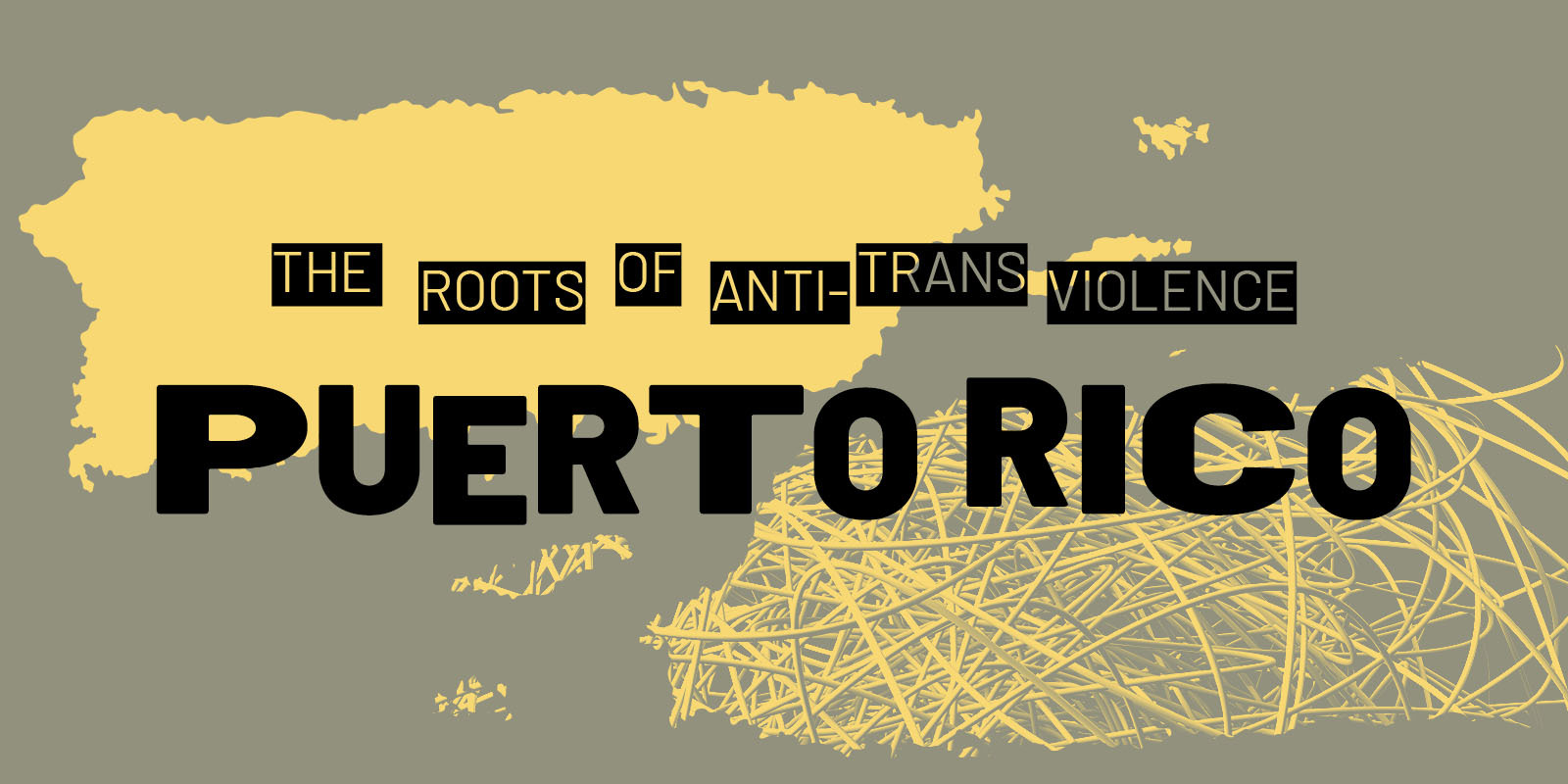The Roots Of Anti-Trans Violence
Puerto Rico has been rocked in recent years by two major hurricanes, earthquakes, blackouts and other failures of infrastructure, all of which have been compounded by the COVID-19 pandemic. The barrage of catastrophes—which resulted in thousands of deaths—left thousands more to process profound trauma, robbing many of any sense of stability. While such events could seem merely unfortunate, activists say they are a predictable result of the island’s centuries-long battle against imperialism, most currently in the form of its status as a U.S. territory.
“Anti-trans violence is rooted in our colonial structures,” says Dania Warhol, founder of Espicy Nipples, a transfeminist network centering the Black trans experience in Puerto Rico. They cite religious fundamentalism–the remnant of Spanish colonialism that paints trans people as depraved–but also imposed legal frameworks that limit possibilities for how oppressed communities respond to crises that are often a direct result of U.S. exploitation of the island.
Read the full story at Autostraddle.
Data

The six known victims of fatal transphobic violence in Puerto Rico were between ages 19 and 33. The two youngest victims were Yampi Méndez Arocho, 19, and Layla Pelaez Sánchez, 21.

Five (83%) of the known victims of fatal transphobic violence were trans feminine, and one was trans masculine.

Each of the known victims of fatal transphobic violence in Puerto Rico were deadnamed and misgendered in initial media accounts and/or police reports of their deaths.
Political Climate
Contrary to a pervasive and widespread misunderstanding, Puerto Rico has had plenty of cultural and political movement toward justice for trans and non-binary folks over the past several decades.
Notably, a number of organizations have worked to create queer and trans sovereign spaces throughout the island; in summer 2017, several groups pooled resources to establish El Hangar as a queer safe space in response to the devastation wrought by Hurricane Maria.
Local activists and advocates have worked to codify protections for LGBTQ+ folks, and specifically for trans folks, into the framework of the Puerto Rican legal system. Law enforcement even has standard protocols for how to navigate interactions with the trans community.
In a pattern consistent with the rest of the U.S., law enforcement in Puerto Rico often fails or refuses to follow their own protocol. Police routinely neglect to fill out gender identity markers on their reports, misgender transgender victims of crime, or simply fail to report crimes against trans people altogether. Trans people and their families often decide against reporting violence to the police in fear of being revictimized, which is likely a factor in the lack of available information about fatal transphobic violence.
The conservative and historically anti-LGBTQ+ Statehood Party, which maintains control of Puerto Rico legislature, continues to resist movements for increased LGBTQ+ protections. They recently approved significant tax breaks for Americans relocating to the island, which has largely attracted conservatives who perpetuate cycles of hostility and violence against the LGBTQ+ community. The influx of Americans to Puerto Rico has also amplified gentrification, which disportionately displaces queer and trans folks from their homes.
Prior to the influence of Spanish colonialism and American imperialism, Puerto Rican culture largely normalized LGBQ+ attraction. However, invading evangelicals injected hate into the local culture and spurred groups of religious fundamentalists to adopt and weaponize their discriminatory tactics.
Contrary to common misconception, Puerto Rican culture is still largely affirming and accepting of trans people. However, their political leaders and police seek to normalize transphobic discrimination and violence, which has motivated an increase in targeted attacks across the island.
Resources
This is a living list and we encourage community members to submit resources aimed at supporting trans and non-binary people in Puerto Rico.

